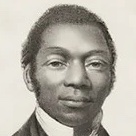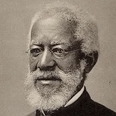Yale University is awarding degrees to two Black men who studied at Yale in the nineteenth century and are thought to be among the first Black students on campus.

James W. C. Pennington (1808-1870) and Alexander Crummell (1819-1898) studied at Yale from 1834 to 1837 and 1840 to 1841, respectively. Because they were Black, however, the university did not allow them to register formally for classes or matriculate for a degree. Pennington and Crummell could not participate in classroom discussions or access library resources. Despite suffering these and other injustices, they audited classes and went on to become noted pastors.
Pennington, born enslaved, published a powerful autobiography, The Fugitive Blacksmith, as well as the first African American history textbook. Crummell was a pan-African scholar and organizer and founded the American Negro Academy in Washington, D.C. Both were leaders in the abolition movement.

Peter Salovey, president of Yale University, stated that “although we cannot return to Pennington and Crummell the access and privileges they were denied when they studied at Yale, we recognize their work and honor their legacies by conferring on them these M.A. Privatim degrees. In the nineteenth century, the board of trustees awarded this honorary master’s degree to individuals who were unable to complete their studies due to special circumstances. That historical context has resonance for these two visionary leaders who studied at Yale and took bold action in the face of unrelenting racism during the nineteenth century.”
Richard Henry Greene of the Class of 1857 was, in all likelihood, the first Black graduate of Yale College. (See JBHE post.)


Rev Crummell was an activist, educator, mentor to WEB Dubois and a fascinating historical figure from my perspective. I always wanted to learn more about him. The recognition from Yale seems appropriate given what they endured during that time.